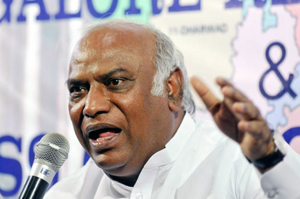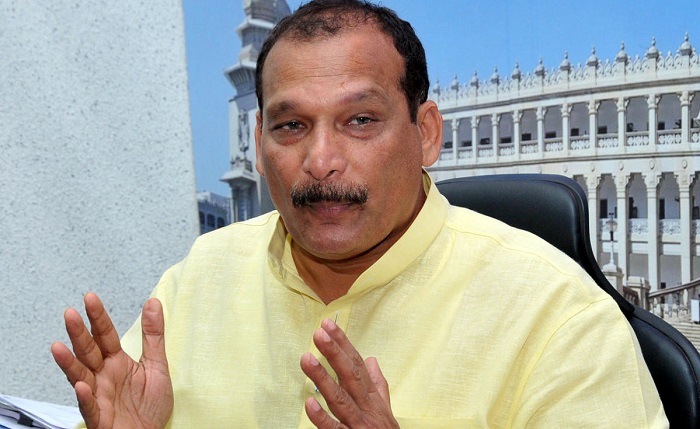New Delhi, Mar 31: A day after former chief minister S M Krishna's meeting with Congress president Sonia Gandhi and vice-president Rahul Gandhi, senior Congress leader Mallikarjuna Kharge on Wednesday said Chief Minister Siddaramaiah should convene the Congress Legislature Party meeting immediately and take the party's view on the decision to set up the Anti-Corruption Bureau.
 Kharge's statement gains significance as Krishna, at the meeting, cautioned about the decision to set up the ACB.
Kharge's statement gains significance as Krishna, at the meeting, cautioned about the decision to set up the ACB.
The chief minister should clarify the doubts about the ACB in the party forum and put an end to the controversy, Kharge told Deccan Herald.
“Congress always favoured a strong Lokpal to fight corruption. This is my stand also,” he said.
The State government has formed the ACB, which exists in 15 states. However, before taking such a decision, the chief minister should have discussed the pros and cons in the party forum, he said.
Dismissing charges that he had supported the move to “weaken” the Lokayukta, Kharge said he had never indulged in such activities.
Neither did he support the ACB nor had he given any suggestions on it, Kharge, Congress party leader in the Lok Sabha, said.
Dismissing media speculations that he had supported the ACB after his recent meeting with the chief minister, Kharge said that he was not at all a party to this controversy.
Earlier, senior Congress leader Janardhana Poojary had suggested the chief minister to reconsider the decision to set up the ACB.






Comments
what to discuss, corrupt govt all they do best to loot the state money as soon as possible, their term will be finishing soon before that they have to loot the money.
everything s fake from congress ruled state, kharge is no 1 Fraudster.
Add new comment